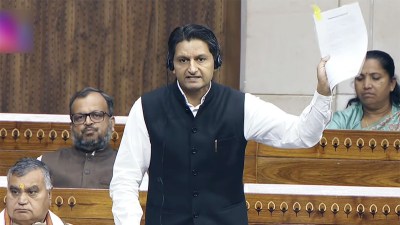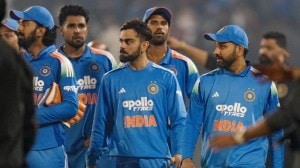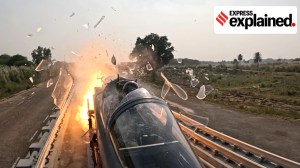Muddying Indus treaty to fix Pak: Delhi could end up in deep end
At a time when India’s relations with Pakistan have taken a nosedive, the annual meeting of the Indus Water Commission is being held to...

At a time when India’s relations with Pakistan have taken a nosedive, the annual meeting of the Indus Water Commission is being held tomorrow as per schedule. There have been demands for abrogating the treaty to put pressure on Pakistan.
Besides some experts, the Jammu and Kashmir government and Bijoya Chakravarty, minister for state for water resources, have sought scrapping of the treaty.
The meeting will be held with a six-member delegation from Pakistan, headed by their commissioner on Indus water, M Mammen. The Indian side will be led by commissioner A C Gupta. According to the Secretary, Ministry of Water Resources, B N Nawalwala, it will be business as usual — discussing the flood-control warning systems and deciding on routine visits.
The treaty, which was signed in 1960 under the auspices of the World Bank, has been cited as a success in all conflict resolution statements, after it survived the wars of 1965 and 1971. Its design is unique, keeping in mind the strained relations between the two countries. Instead of dividing the water of all the rivers, it simplified the process by giving the three eastern rivers of Sutlej, Beas and Ravi to India and Indus, Chenab and Jhelum to Pakistan.
It meant that though the flowing water could be used by India, being the upper riparian state, it was barred from building storage facilities or diverting the rivers. Since most of the water projects were in Indian territory, India had even paid 63 million pounds to Pakistan as compensation after the treaty.
Experts argue that abrogating the treaty would amount to India saying it has the right to build dams and reservoirs.
‘‘Those asking for abrogation are not familiar with the geography of the region. This will have no immediate impact on the ground since it will require 10-15 years to build these facilities,’’ said B G Verghese, expert on water at Centre for Policy Research.
Hypothetically, experts argue there are only two options — it would mean either flooding Punjab and Haryana, that is if water is diverted to Bhakra, Pong and Thein dams, or draining it to Pakistan would mean depriving our own states.
It will only get India international ill-will without any concrete benefit. It is ‘‘indefensible’’ under international law to stop water and is tantamount to an act of war; Pakistan can then appeal to the UN Security Council. ‘‘Since, it has been signed by heads of two states, violating its sanctity would make other neighbours nervous. We have a treaty with Bangladesh and Nepal for Ganga and Mahakali,’’ said Ramaswamy Iyer, former secretary of Ministry of Water Resources.
The treaty has functioned well, barring a few hiccups. The Salal hydroelectric project on the Indian side was obstructed by Pakistan for years, till it finally got underway in the 1980s.
The Tulbul navigation project was also delayed by Pakistan till they were convinced that the project would not affect the flow of water to Pakistan. The Bagliar hydel project on Chenab, still in limbo, is on tomorrow’ agenda.
- 01
- 02
- 03
- 04
- 05































